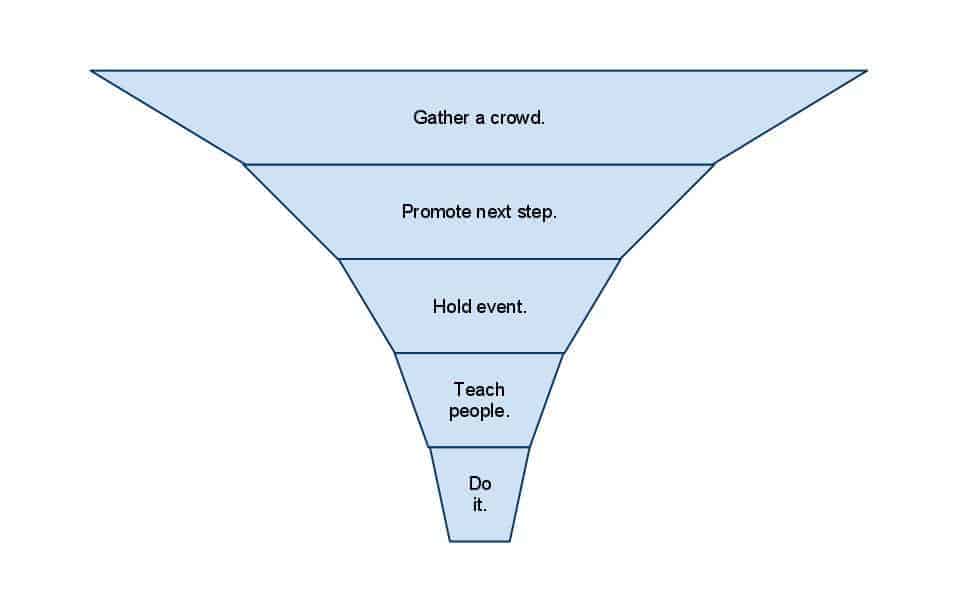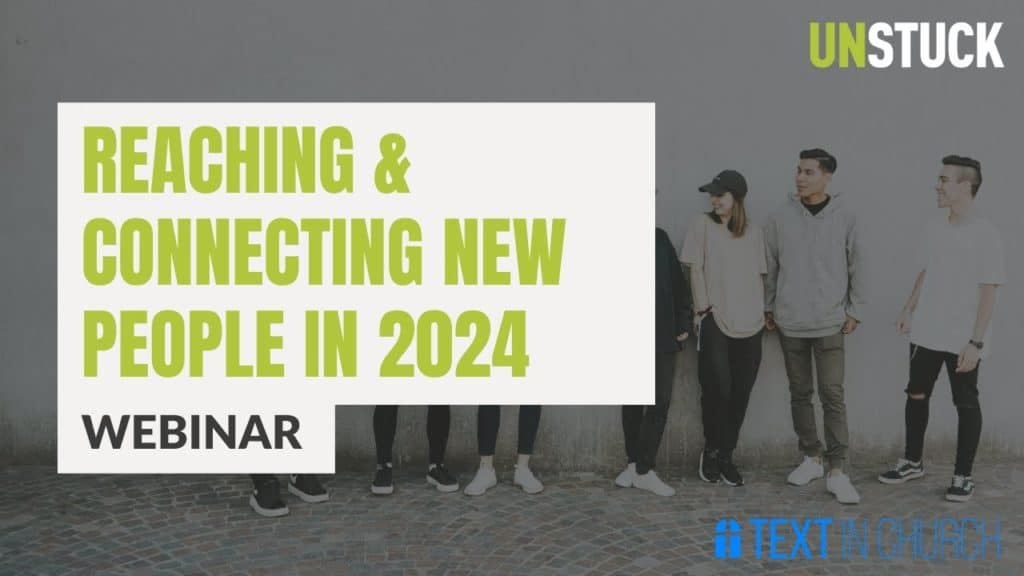This is a picture of how most every next step looks like in a typical church these days. Whether it’s discipleship or leadership development or community connections or volunteer engagement, we follow this formula.
So, if we we want to give people more Bible training, we promote the class at the Sunday service. A small percentage of people sign up to participate. Of those who sign up, a percentage of those folks don’t show up. Then, of the people who actually attend the class, a percentage of those folks end up actually applying their new knowledge.
Or, if we want to prepare people for a volunteer opportunity, we promote the chance to serve at a Sunday service. A small percentage of people sign up to attend an orientation. Of those who sign up, a percentage of those folks don’t show up. Then, of the people who actually attend the orientation, a percentage of those folks end up actually serving.
Again, this is a typical pattern that I see in practically every church I walk into. Every step along the way, as you might expect, fewer and fewer people engage.
Here’s why:
- The process is complex. Every link along the way creates another barrier to entry.
- The process is location specific. In an online world, the church typically still forces people to go to a building to engage.
- The process is time specific. We live in a DVR-world where we’re accustomed to interacting with content on our schedule, but churches typically require people to obtain knowledge on their schedule.
- The process is church-centric. We’re trying to give people the information we think we need rather than offering a solution that addresses someone’s unique needs. We’re attempting to offer a one-size-fits-all solution.
- The process is dependent on one person to deliver content. Whether it’s Bible knowledge or volunteer training or leadership wisdom, the “show up to an event”-solution means the knowledge-bearer becomes the bottleneck.
When I go into churches to help them streamline their systems to engage more people into ministry, here are some of the questions I process with them to change their thinking?
- What would have to happen for people to “do it” without having to attend another event first? That question forces teams to brainstorm solutions that remove steps in the process.
- What would it take to move content online so people would engage it on their time from anywhere? There are lots of free online apps that make this easier and easier every day.
- Is there an existing resource that you could recommend to people when they need it? This eliminates the need to teach all the content and it provides a more customized plan for growth.
- If everyone needs the training, can it happen when everyone is already gathered? This eliminates the need for additional commitments to calendars that are already over-booked.
- If you’re giving information, do you really have to gather people to do it? Wouldn’t it be easier to share the information through an email message?
Unfortunately, we are such an event-driven, program-driven institution that we measure success based on the number of people who show up rather than the number of people who are being transformed.
Instead of relying on events to grow people up, we need to encourage people who are already connected in serving, leading, Bible study, community or whatever the case may be to take responsibility for discipling people in their lives. That begins with people building relationships with other people. Then, they begin to invite their friends to take next steps based on the specific needs of the invidiual. Rather than building discipleship based on events, it’s based on relationships. In other words, the “do it” comes first.
Maybe it’s time we flip the funnel.






